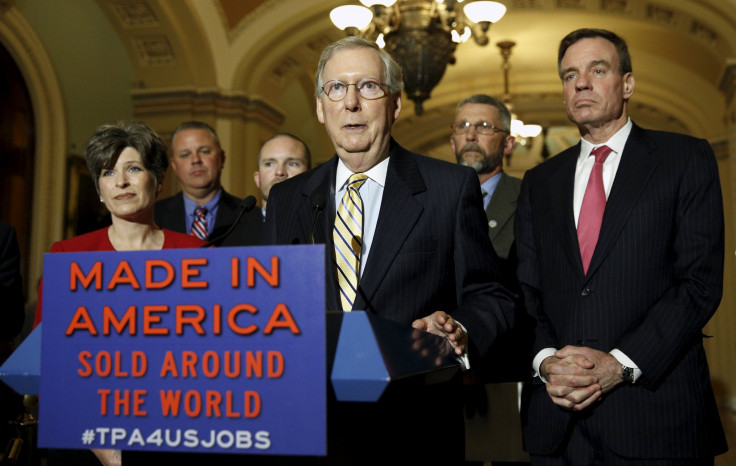Obama Trade Agenda Clears Elizabeth Warren Opposition Again

WASHINGTON -- Legislation to expedite a trade deal with several Pacific nations cleared a crucial procedural hurdle in the Senate Thursday. Democrats, led by Sen. Elizabeth Warren of Massachusetts, who are fighting against their own president failed to rally enough of their fellow senators to sink the legislation.
“We need to pass [Trade Promotion Authority] to demonstrate to the American people that, despite our many disagreements, their elected representatives are capable of addressing important issues and solving real problems,” said Sen. Orrin Hatch, R-Utah, who is shepherding the bill through the Senate. “There is a path forward here; one that will still allow us to be successful.”
President Barack Obama’s trade agenda still faces several more hurdles in the Senate that could allow Democratic opponents to rally enough support to sink the bill. If Democrats remain strident in their opposition, the vote could be delayed until Saturday. And it remains unclear whether House Speaker John Boehner, R-Ohio, will be able to rally enough support in his chamber to pass the bill.
Last week, Senate Majority Leader Mitch McConnell, R-Ky., permitted a series of of votes on bills and amendments to appease Democrats in order to gain the needed votes. The procedural vote was cleared by 62 to 38 to continue to move forward on legislation that would allow the administration more flexibility to negotiate the Trans-Pacific Partnership trade deal -- which includes several nations from North America, South America and Asia.
The bill being debated is known as Trade Promotion Authority or TPA. If Obama strikes a deal on the Trans-Pacific Partnership, Congress would be limited to an up-or-down vote on it, and the Senate would not be able to filibuster the bill. The White House argues that TPA is necessary to let the U.S. freely negotiate the deal and without fear of its being amended to death in the legislative process.
But opponents of the Trans-Pacific Partnership, also known as TPP, say the deal will kill American jobs and allow business to send more manufacturing overseas. Warren has also argued that the deal would let American companies circumvent U.S. regulations by appealing to arbitrators established in the deal to settle trade disagreements.
"The Senate just put the interests of powerful multinational corporations, drug companies and Wall Street ahead of the needs of American workers," said Sen. Bernie Sanders of Vermont, who is running for president in 2016. "If this disastrous trade agreement is approved, it will throw Americans out of work while companies continue moving operations and good-paying jobs to low-wage countries overseas."
And the authority to negotiate trade deals wouldn’t be limited to the just the large Pacific pact currently being brokered by the Obama administration. The authority would last for three years and could be renewed for an additional three years without the risk of being filibustered by the Senate.
Critics of the bill say the long time frame makes it even more dangerous. The guarantee of a new president -- possibly of a different political party -- has some Democrats concerned about the types of deals that could be struck under a new administration.
Critics also pointed to the speed that TPA was considered by the Senate. The upper chamber has been considering the bill for two weeks, but most of last week was without amendments as Democrats first successfully blocked consideration of the bill. They are attempting to complete passage before they head home Friday for a weeklong Memorial Day recess.
“This year Barack Obama and Mitch McConnell jammed through TPA, with limited amendments, focused more on getting senators home for vacation, than on the Americans who have lost their jobs due to poorly negotiated trade deals,” said Murshed Zaheed, the deputy political director at Credo Action, a liberal group that is a vocal critic of the trade deal.
© Copyright IBTimes 2024. All rights reserved.












